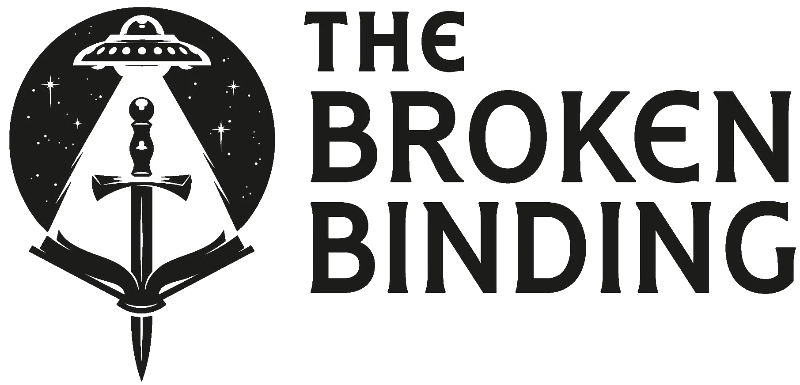Alright alright. That was one hella click-baity title but it’s the truth. Unless paying every month for something you can do yourself is your jam.
Step 1 – Identify your proposition
The reason I want a website is…
A common misconception is that just having a website is enough to draw crowds of eager patrons flocking to you. It’s not. A website is your digital presence, and much like your physical presence, for people to know you even exist you to need to make some noise. More than in real life actually, because your digital presence is but a shade of the very complicated and elegant being that you are. The good thing is it’s easy to take control of your digital presence and have it work for you.
Before we get into the nitty gritty let’s take a brief look at the why and in this case though I’m assuming you need a website to help you push your writing. A personal website is the perfect place to do this, and it’s very easy and straightforward to set up. Let’s get busy.
If you’re not a writer then you will still find use in the methods I publish here even if some things are geared towards writing.
Identify your key goal
Some may tell you that the web is so versatile that your website should also be able to do multiple things. It should, you’re right, but they should be centred around one value proposition, and that thing was what you decided a minute ago. The reason why you want a website…if you decided you want a website to push your work then when someone happens upon your website then they should know almost immediately what they’re looking at. Are you selling a book? Writing it? Crowd funding it? Make your point clear from the get go. Page 1. The homepage.
The curse of the homepage
The homepage is your first impression and deciding what to put here is fraught with difficulty. What would you say to a person you had never met before, yet had approached you because you are an author? You would drop the elevator pitch for your book surely. A breakdown that might capture their attention. The homepage does the same, except you’re not there to help the person along, they need to be led by your content, and as a writer you’re already well versed in narratives. Begin at the start or the top in this case, visually making the genre clear through your book imagery which should be visible as soon as the page loads. Alternatively you could take a more product-style approach and put your value prop first. Something like:
The latest DCI Smith novel is now available. Read an exclusive snippet.
[Read a snippet button] [Buy it now button]
Beneath which you could then place your imagery, perhaps in the form of your book and ebook covers. Include some secondary info below if you like but keep it short, as most likely it will be ignored. Keep the routes to your book clear and make it easy for people to buy.
Squarespace? Nah. Wix? On yer bike. Hello WordPress.
We’re getting ahead of ourselves. Before we consider the site we first need to choose a platform, and my recommendation is always WordPress.
The reasons you might want a website will govern the approach you take, and in the past this would have involved employing a web developer to do it for you. Nowadays it is quite easy for anyone to pick up the skill and if you give it time you can learn how to build your own site very quickly. Today WordPress comes in these two forms:
Self hosted WordPress is where it’s at. You download WordPress to your computer unzip it then upload it to a hosted server and BOOM, you have a website. WordPress uses themes as the skin/design of your website, and it even comes with a couple of free ones to get you going.
The difference between WordPress, Drupal, Wix and Squarespace
WordPress is one of those bits of software that came out a long time ago, yet never seemed to die. Predominantly a blogging platform it grew into a full Content Management System able to support multiple content types. So instead of blog articles, maybe you want to create recipes, or movie reviews, or tutorials… And so grew the modern CMS. Drupal was another CMS that had been around for 3 years already when WordPress was first released in 2003 and the two grew up together learning much from one another. Drupal was picked up by developers for its ease of customisation and powers many of the corporate sites of the world, whereas WordPress went for the masses and millions of portfolio sites and blogs popped up ushering a new era of web content. Budding developers and designers took advantage of WordPress’s library of themes and plugins and built upon them, hacking their own creations into being. WordPress remains the more popular of the two because it simplified its offering early on to work as a full CMS, and was more accessible, which was a great decision by WordPress owners Automattic, who also make many of WordPress’s more famous plugins.
As better internet bandwidths came along so the use of cloud-based web tools like Wix and Squarespace took centre stage. Wix and Squarespace took WordPress’s blogging platform, (initially a cloud service itself) and streamlined it, and with a fistful of marketing dollars were able to become household names.
At its core though the web is just a processor of HTML (structure), CSS (style) and Javascript (everything else). There are some cool libraries out there, but they’re still Javascript based. In other words, the self hosted website is going nowhere because it outputs HTML, CSS and, you guessed it… Javascript.
Selling online
As a writer you will want to push your books. You will want the world to know who you are, and then surely fame and fortune will follow. Even if you aren’t selling physical copies of your book online, you will always be selling online. You’ll be marketing your wares to an audience eager to receive them and so your website’s raison d’être is revealed. Your buttons are all “Buy my book” and your content includes snippets, book imagery, and reviews of your work.
If you are actually selling your books online then you need an online shop. Ecommerce is your life now, so it’s probably best to start boning up on how they work, and develop the technical expertise to handle it yourself. (Just as a teaser to a future post, this is very possible, and very straight forward within the realms of WordPress and there are plugins and themes designed especially for this reason.)
As the seller it is also your responsibility to consider your demographic. Who will be handing over their hard-earned money for your books and where did they come from? There are millions of ways to market yourself and your work so it’s best to start by putting yourself into the shoes of the user who you are selling to.
For example, if you are a crime writer, then sticking a tolkien-esque map on your front page will create confusion amongst your targeted users: those who read crime. Think of your site like your book cover. First impressions are everything. Maybe you’re straddling genres though, and just maybe your crime audience are expecting that map of middle-earth. How would you know?
User research
This is a loaded subject. I mean of course I’m going to talk about user research! It’s part of my job. I don’t expect everyone to start wondering if they should be testing with subjects and conducting face-to-face interviews, but there are some things you can do without even leaving your chair.
Social media experiments
I’m assuming at this point you’ve started some sort of social media page and have some sort of following. Speak to them. Throw a few polls up. Ask them how they found you, and where. What do they like about your writing? Message a few of them. Get in touch with your beta readers if you have them, and ask them too. What about you is different? Why read your work over someone else?
When you know that, you can capitalise on it. We’ll call these people your user segment. The name doesn’t matter though, only the fact that they share one characteristic. You.
Using user research effectively
Your user segment knows you exist, and they like your work, but what else do they like? Engage with them. Become friends. Begin conversations. This is always overlooked by the marketing side, and the non-marketing side don’t apply the business element to friendly engagements. Get the balance right and you can, as they say, make friends and influence people.
On Twitter you can even see who your user segment follow themselves. Maybe they have friends. Do this enough and you’ll start to see the patterns of people clustering around others. The trick to good engagement is to engage yourself. Just have a bit of direction so you talk to people who are like you. Easy.
It’s not easy. Writers are often introverted and have big problems with this. I do myself, but I know it now, so I purposefully throw myself into situations that scare the hell outa me. And not a single one has been as bad as I thought it would be. In fact they’ve all had something positive to take away that I would not have experienced otherwise.
Ok. Now what?
When we know the why, it’s time to think about the how, and exactly how do you make a website from scratch?
Please consider signing up to the site and when the next part goes live, you’ll be the first to know.
Join my mailing list
Be the first to know, and get exclusive offers & content, author editions and maps.








Comment on this article
Be the first to comment.